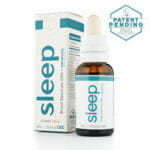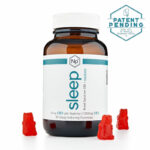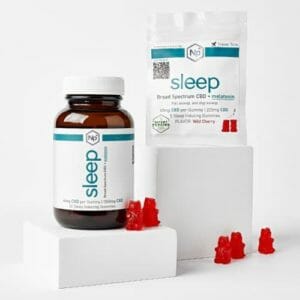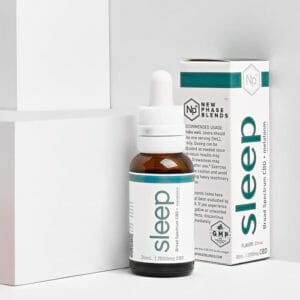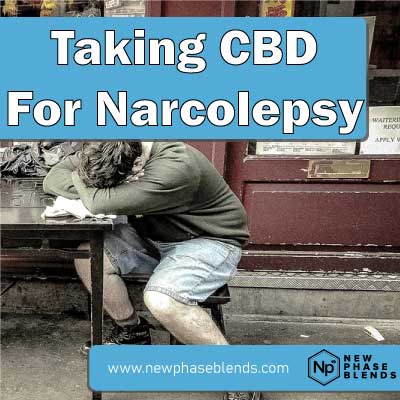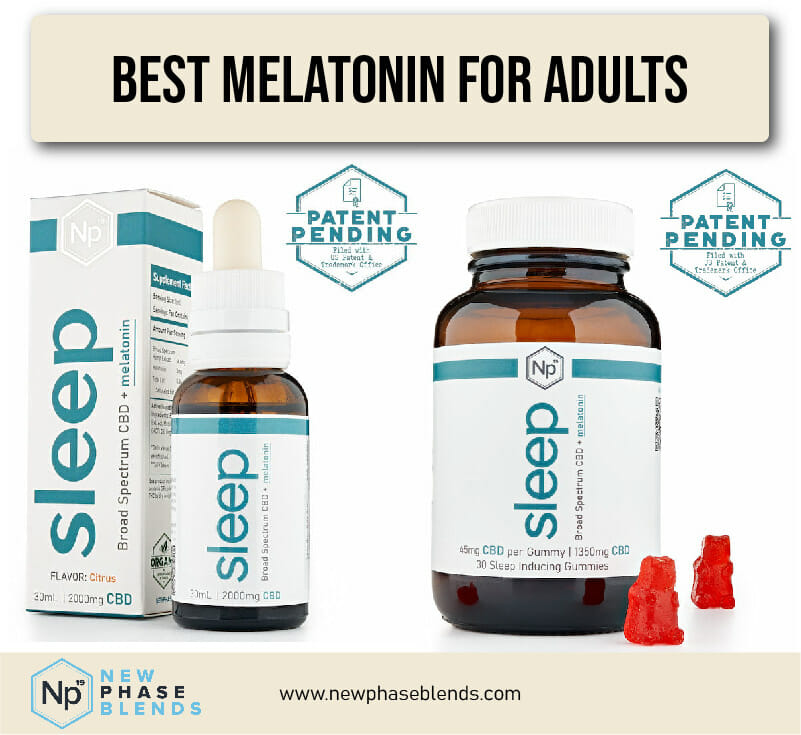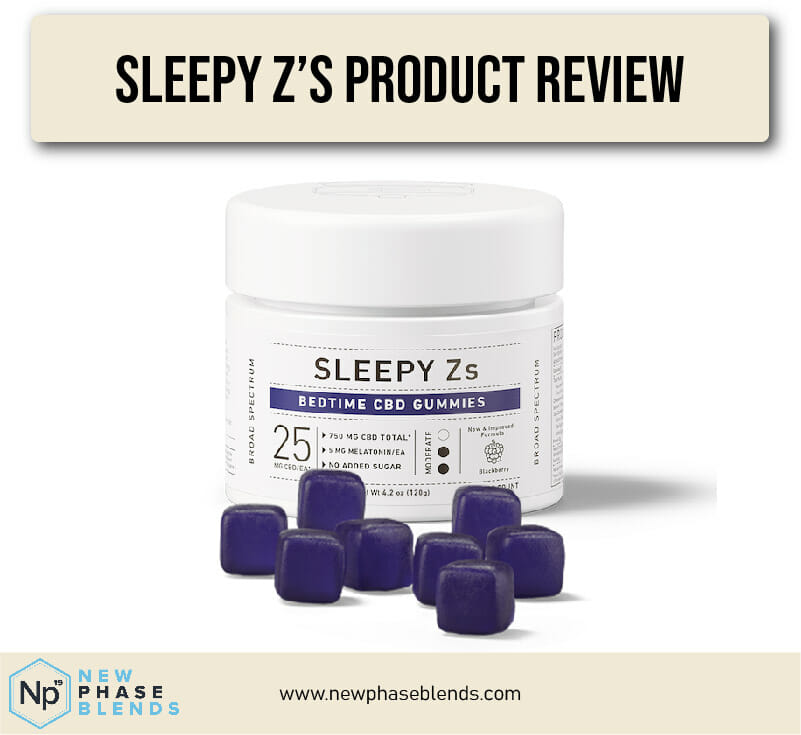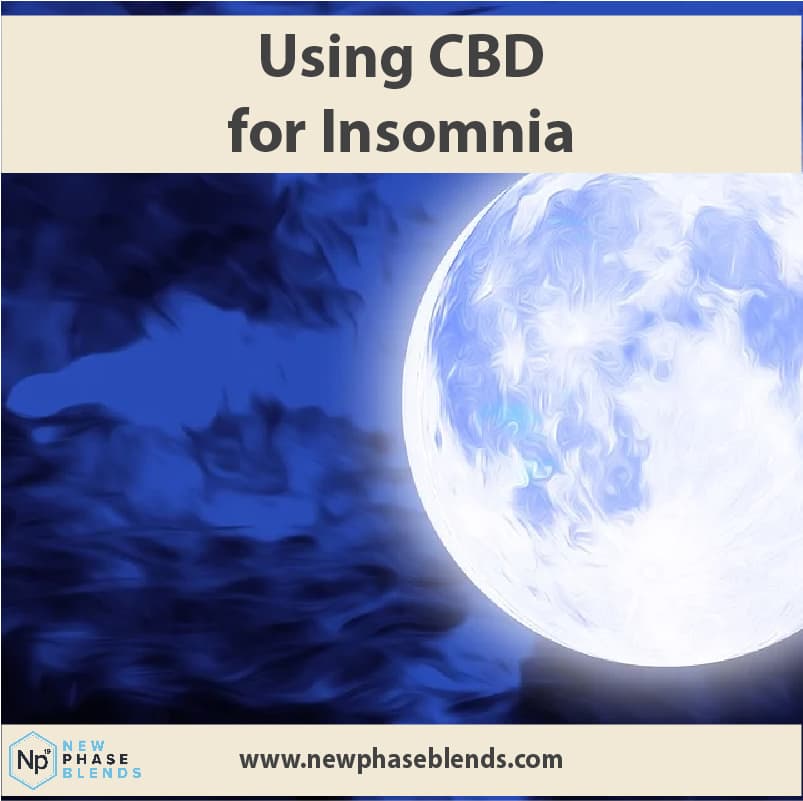Falling asleep and staying asleep can become increasingly challenging as we get older. Many elderly individuals experience insomnia, sleep disruptions, and reduced sleep quality, leading to daytime fatigue and decreased quality of life. CBD (cannabidiol) has emerged as a potential natural sleep aid that may help address these common sleep concerns. In this article, we’ll explore the research behind CBD for sleep in elderly populations, different product options including CBD oil and gummies, potential benefits and risks, proper dosing guidelines, and how CBD might interact with medications commonly prescribed to seniors.
Having researched the effects of cannabinoids on sleep patterns across various age groups, our staff will provide evidence-based information to help elderly individuals and their caregivers make informed decisions about whether CBD might be appropriate for their sleep concerns.
What is CBD and How Might It Help with Sleep?
As interest in natural sleep remedies grows, many elderly individuals are turning to CBD products. Before considering CBD for sleep, it’s important to understand what CBD is, how it differs from other cannabis compounds, and the specific mechanisms through which it may influence sleep patterns in older adults.
The Basics of Using CBD For Sleep
Cannabidiol (CBD) is a naturally occurring compound found in cannabis plants. Unlike THC (tetrahydrocannabinol), CBD is non-intoxicating and doesn’t produce a “high.” It interacts with the body’s endocannabinoid system, which helps regulate many physiological processes including mood, pain perception, immune function, and sleep cycles. Because of the way CBD interacts with this bodily system, it’s widely accepted that using CBD oil for sleep management is effective.
Potential Sleep Benefits of CBD for Elderly Users
Research suggests CBD may benefit sleep in elderly individuals through several mechanisms. CBD has shown anxiolytic (anxiety-reducing) properties in clinical studies. For many elderly people, nighttime anxiety contributes significantly to sleep difficulties. Chronic pain is another common sleep disruptor in aging populations, and CBD’s anti-inflammatory and analgesic properties may help reduce pain that interferes with sleep.
Some research indicates CBD may directly influence sleep architecture by potentially increasing total sleep time and improving sleep stability. Additionally, CBD may help regulate circadian rhythms, which often become disrupted with age, further supporting healthy sleep patterns in elderly individuals.
Understanding Sleep Challenges in Elderly Populations
Research from the Sleep Foundation (2023) shows us that sleep issues become increasingly common with age, affecting roughly 40-70% of elderly individuals. These sleep disturbances not only impact quality of life but can have significant consequences for overall health and cognitive function. Understanding these age-related changes is the first step in determining whether CBD might be a helpful intervention.

According to the Journal of General and Family Medicine (2017 ), Insomnia, sleep-disordered breathing (including sleep apnea), restless legs syndrome, and REM sleep behavior disorder are among the primary sleep disorders observed in older individuals. These conditions often coexist with chronic medical issues and can exacerbate cognitive decline.
Common Sleep Problems As We Age
As we age, our sleep architecture undergoes significant changes. Many elderly individuals experience difficulty falling asleep, frequent nighttime awakenings, early morning wakings, and reduced deep sleep (slow-wave sleep). They also tend to have less total sleep time and increased daytime napping.
These changes aren’t merely inconveniences—poor sleep in older adults has been linked to increased risk of cognitive decline, depression, cardiovascular issues, and reduced immune function. The prevalence of sleep medications among seniors is high, but many prescription sleep aids carry risks of side effects including daytime drowsiness, confusion, and increased fall risk.
Conventional Treatments and Their Limitations
Traditional approaches to managing sleep issues in the elderly often include medications that come with significant drawbacks. Sleep medications like benzodiazepines and “Z-drugs” (zolpidem, zaleplon) can be effective short-term but may lead to dependence, morning grogginess, and cognitive impairment when used long-term. Over-the-counter sleep aids containing antihistamines can cause excessive drowsiness, dry mouth, constipation, and urinary retention—symptoms that are particularly problematic for elderly individuals.
This context explains why many seniors and their healthcare providers are exploring alternative approaches like CBD for improving sleep quality.
Research on CBD for Sleep in Elderly Populations
While CBD has gained popularity as a sleep aid, it’s essential to examine the scientific evidence specifically related to its use in elderly populations. Although research dedicated to seniors and CBD is still developing, several studies provide insights into its potential effectiveness and appropriate applications for age-related sleep disturbances.
The scientific evidence specifically focused on CBD for sleep in elderly populations is still emerging, but several studies provide promising insights. A 2019 case series published in The Permanente Journal found that CBD improved sleep scores in 48 patients (many of whom were elderly) within the first month of treatment. Sleep scores improved in 66.7% of patients.
According to research in an article titled Cannabis use for Sleep Disturbance Among Older Patients in a Geriatrics Clinic (2018), improvements in sleep quality among participants was observed after using CBD, though the researchers noted that sleep benefits fluctuated over time. Research specifically on elderly populations is more limited, but these preliminary findings suggest potential benefits that warrant further investigation.
CBD Product Options for Elderly Sleep Support
For elderly individuals interested in trying CBD for sleep, navigating the various product types can be confusing. The two most common and accessible options are CBD oils and CBD gummies, each with distinct advantages and considerations particularly relevant to seniors. Understanding these differences can help elderly users select the product that best fits their needs, preferences, and lifestyle.
CBD Oil for Sleep in Elderly
CBD oil is administered sublingually (under the tongue) using a dropper. This method allows for relatively quick absorption into the bloodstream through the mucous membranes. For elderly users, CBD oil offers several advantages including precise dosing capabilities, faster onset of effects (typically 15-45 minutes), higher bioavailability compared to edibles, and flexibility to adjust dosage easily.
Type: CBD Oil For Sleep
CBD: 66mg per serving
Features: Free shipping, money back guarantee
However, there are some considerations for elderly users. Some may find the taste unpleasant, and using a dropper requires sufficient dexterity, which may be challenging for those with arthritis or hand tremors. Additionally, the effects of CBD oil typically last 4-6 hours, which may be shorter than other delivery methods like edibles.
CBD Gummies for Sleep in Elderly
CBD gummies for sleep provide a pre-measured dose of CBD in an easy-to-consume format. For elderly users, gummies offer convenience with a familiar format, pre-measured doses that eliminate guesswork, pleasant taste that masks CBD’s natural flavor, and no need for special administration techniques. The effects may also last longer (6-8 hours) due to the digestive processing, potentially providing better support through the night.
Type: CBD gummies for sleep
CBD: 45mg per gummy
Features: Free Shipping, Money Back Guarantee
The drawbacks include a slower onset of action (30-90 minutes) as they must be digested first. Certain CBD gummies for sleep may contain sugar, which could be a concern for diabetics or those watching their sugar intake. The fixed dosages make fine-tuning more difficult, and they generally have lower bioavailability due to first-pass metabolism in the liver.
Dosing CBD for Sleep in Elderly Individuals
Finding the right CBD dosage is often a personalized process, and this is particularly true for elderly individuals. Age-related changes in metabolism, potential medication interactions, and increased sensitivity to substances make proper dosing crucial for safety and effectiveness. Unlike many prescription medications, CBD doesn’t have standard dosing guidelines, which can make the process challenging without proper guidance.
Proper dosing is especially important for elderly individuals, who may be more sensitive to medications and supplements.
Starting Low and Going Slow
The general recommendation for elderly individuals new to CBD is to start with a very low dose (5-10mg) taken 1-2 hours before bedtime. It’s advisable to maintain this dosage for at least one week while monitoring effects. If needed, increase by small increments (5mg) weekly, and continue adjusting until finding the minimal effective dose that provides sleep benefits.
Finding the Optimal Dose of CBD to Improve Sleep
The optimal CBD dosage varies significantly between individuals based on factors such as body weight, metabolism, genetics, severity of sleep issues, and other medications being taken. Most elderly individuals find effective sleep benefits at doses between 10-30mg, though some may require more or less. Working with a healthcare provider experienced in cannabinoid therapy can be extremely helpful in finding the right dose tailored to individual needs and medical circumstances.
Safety Considerations for Elderly CBD Users
While CBD is generally considered to have a good safety profile, elderly individuals need to be aware of specific concerns that may be more relevant to their age group. Safety considerations become particularly important for seniors who typically take multiple medications and may have underlying health conditions that could be affected by CBD use. Understanding these potential risks allows for more informed decision-making.
One of the most important considerations for elderly CBD users is potential drug interactions. CBD can affect how the body processes certain medications by inhibiting cytochrome P450 enzymes in the liver. Medications that may interact with CBD include blood thinners (e.g., warfarin), certain antidepressants, heart rhythm medications, some seizure medications, and many statins. This is why consulting with a healthcare provider before starting CBD is crucial for elderly individuals who typically take multiple medications.
Potential Side Effects of CBD
Though generally well-tolerated, CBD may cause side effects including dry mouth, drowsiness or lightheadedness, digestive upset, changes in appetite, and temporary drops in blood pressure. These CBD side effects are typically mild but may be more pronounced in elderly individuals due to age-related changes in metabolism and increased sensitivity to substances.
How to Select Quality CBD Products To Help Improve Your Sleep
The CBD market is largely unregulated, making product selection a crucial step for ensuring both safety and effectiveness, especially for vulnerable populations like the elderly. With countless brands making various claims, knowing how to identify high-quality products becomes essential. By understanding key quality indicators, elderly consumers can make more confident choices when selecting CBD products for sleep support.
When selecting CBD products for sleep, elderly consumers should prioritize products with several quality indicators. Third-party testing is essential—reputable companies provide certificates of analysis (COAs) from independent laboratories verifying CBD content and confirming the absence of contaminants like pesticides, heavy metals, and residual solvents.
Clear labeling is another important factor. Products should clearly state the CBD content per serving and whether they’re full-spectrum, broad-spectrum, or CBD isolate. The extraction method is also significant, with CO2 extraction considered the gold standard for purity and safety.
Organic cultivation practices are preferable since cannabis plants can absorb toxins from soil. Additionally, companies that follow Good Manufacturing Practices (GMP) standards tend to produce more consistent and reliable products, which is particularly important for medicinal use in vulnerable populations like the elderly.
Practical Tips for Using CBD for Sleep in Elderly
For optimal sleep benefits, consistency is key. Taking CBD at the same time each evening helps establish a routine that signals the body it’s time to prepare for sleep. Allow sufficient time before bed (60-90 minutes for oils, 90-120 minutes for gummies) for the CBD to take effect. Creating a consistent sleep environment and bedtime routine enhances CBD’s effectiveness, and combining CBD with other sleep hygiene practices like reducing blue light exposure and maintaining regular sleep-wake times can amplify benefits.
Keeping a sleep journal can help determine whether CBD is providing benefits and guide dosage adjustments. Note CBD dosage and timing, time to fall asleep, number of nighttime awakenings, morning feeling upon waking, and any side effects experienced. This systematic tracking provides objective data to evaluate CBD’s effectiveness for your specific sleep issues and helps when consulting with healthcare providers about your sleep management plan.
Conclusion
CBD shows promise as a potential sleep aid for elderly individuals struggling with common age-related sleep disturbances. Its multi-faceted effects on anxiety, pain, and sleep architecture make it an intriguing option worth considering, especially for those who have found conventional sleep medications problematic.
However, CBD is not a miracle cure, and its effects vary between individuals. The current research, while promising, is still developing—particularly for elderly-specific populations. Elderly individuals interested in trying CBD for sleep should consult with their healthcare provider, especially regarding potential drug interactions; start with low doses and increase gradually; choose high-quality products from reputable manufacturers; and monitor effects systematically.
With careful approach and appropriate medical supervision, CBD may offer a valuable addition to the sleep support toolkit for many elderly individuals seeking more restful nights and more energetic days.



